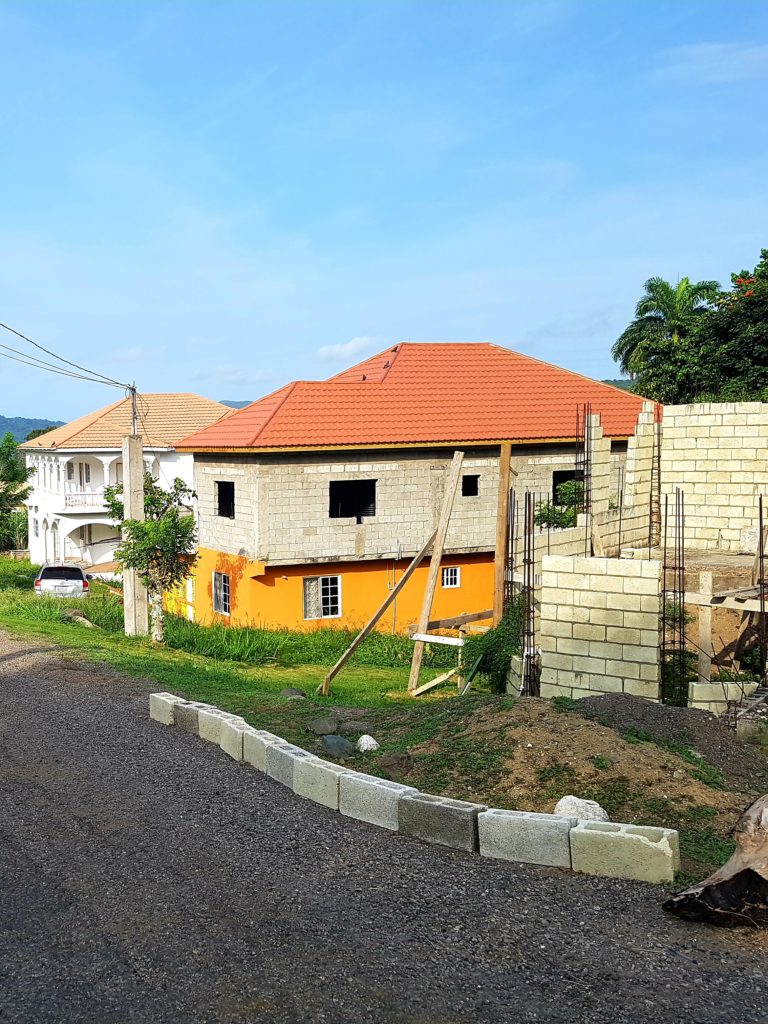A new perspective on time
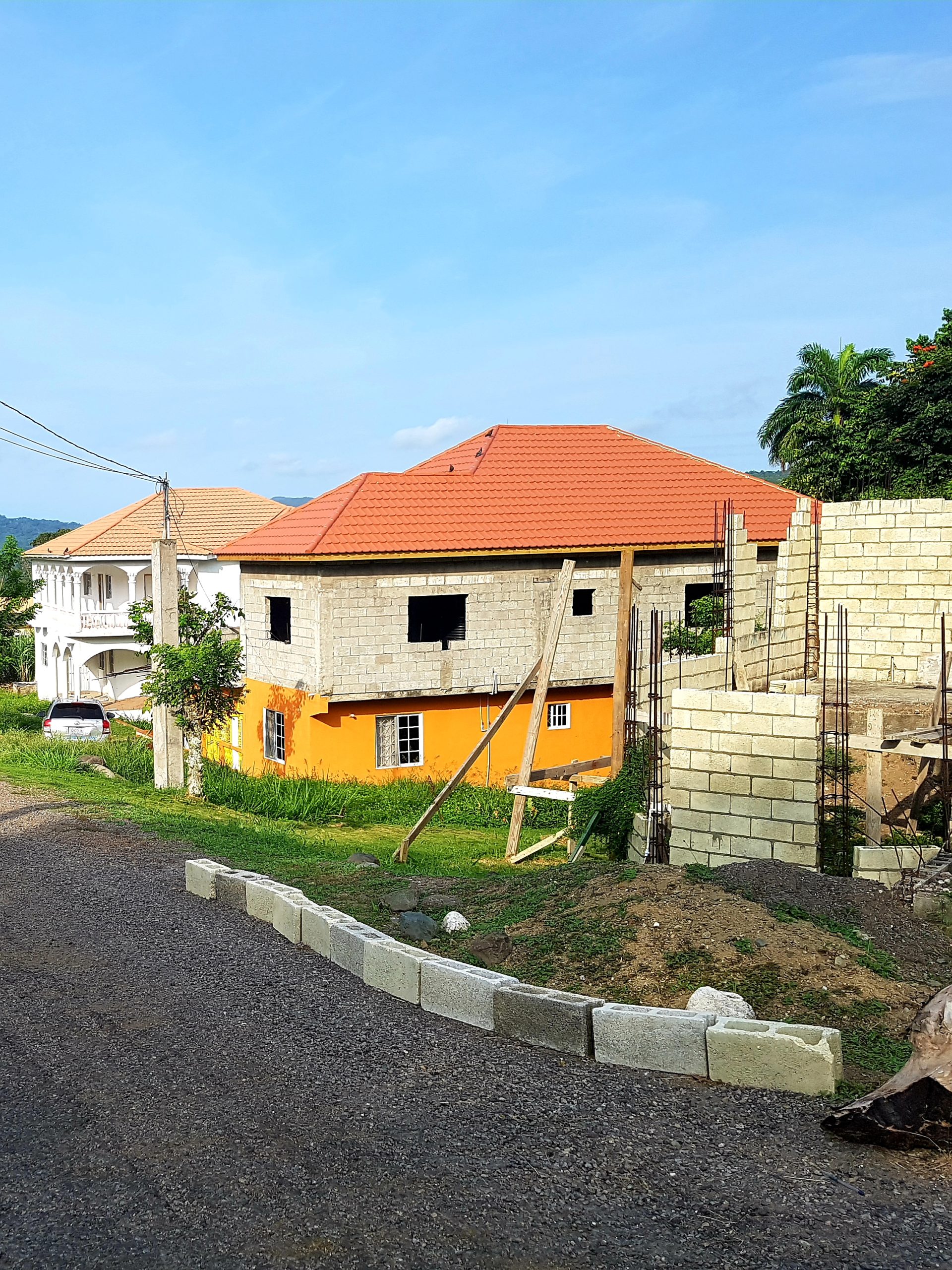 I wish you could meet my friend Harpreet. God used her in the waiting period I had before coming to Jamaica. Harpreet is Sikh but she attended a Catholic school growing up in India. Continuing in this vein of diverse perspectives, she is incredibly well-read on a broad range of topics and shares from that wealth of knowledge as plentifully as rain from clouds during monsoon. We worked together in back-to-back cubicles at my last job in Canada. I, being one to frantically work through all breaks needed Harpreet, a seasoned social worker and wise friend who understands many things differently than I, and ‘time’ being an important one.
I wish you could meet my friend Harpreet. God used her in the waiting period I had before coming to Jamaica. Harpreet is Sikh but she attended a Catholic school growing up in India. Continuing in this vein of diverse perspectives, she is incredibly well-read on a broad range of topics and shares from that wealth of knowledge as plentifully as rain from clouds during monsoon. We worked together in back-to-back cubicles at my last job in Canada. I, being one to frantically work through all breaks needed Harpreet, a seasoned social worker and wise friend who understands many things differently than I, and ‘time’ being an important one.
On one of the many days that she literally pulled me out of my chair at the office, I commented something along the lines of feeling like there’s never enough time. She heard me out, reflected my sentiments, and then gently offered me an invitation to consider matters in a different light. She said something like, “The beautiful thing about time, Rachel, is that unlike so many other things in life, in the case of time we all get the same amount: each and every one of us gets 24 hours. Young and old, rich and poor, in all parts of the world, no matter our race, gender, ability, orientation, affiliation, and so forth – no matter our differences – God has lovingly, justly and generously met all our needs equally on this one: 24 hours each”.
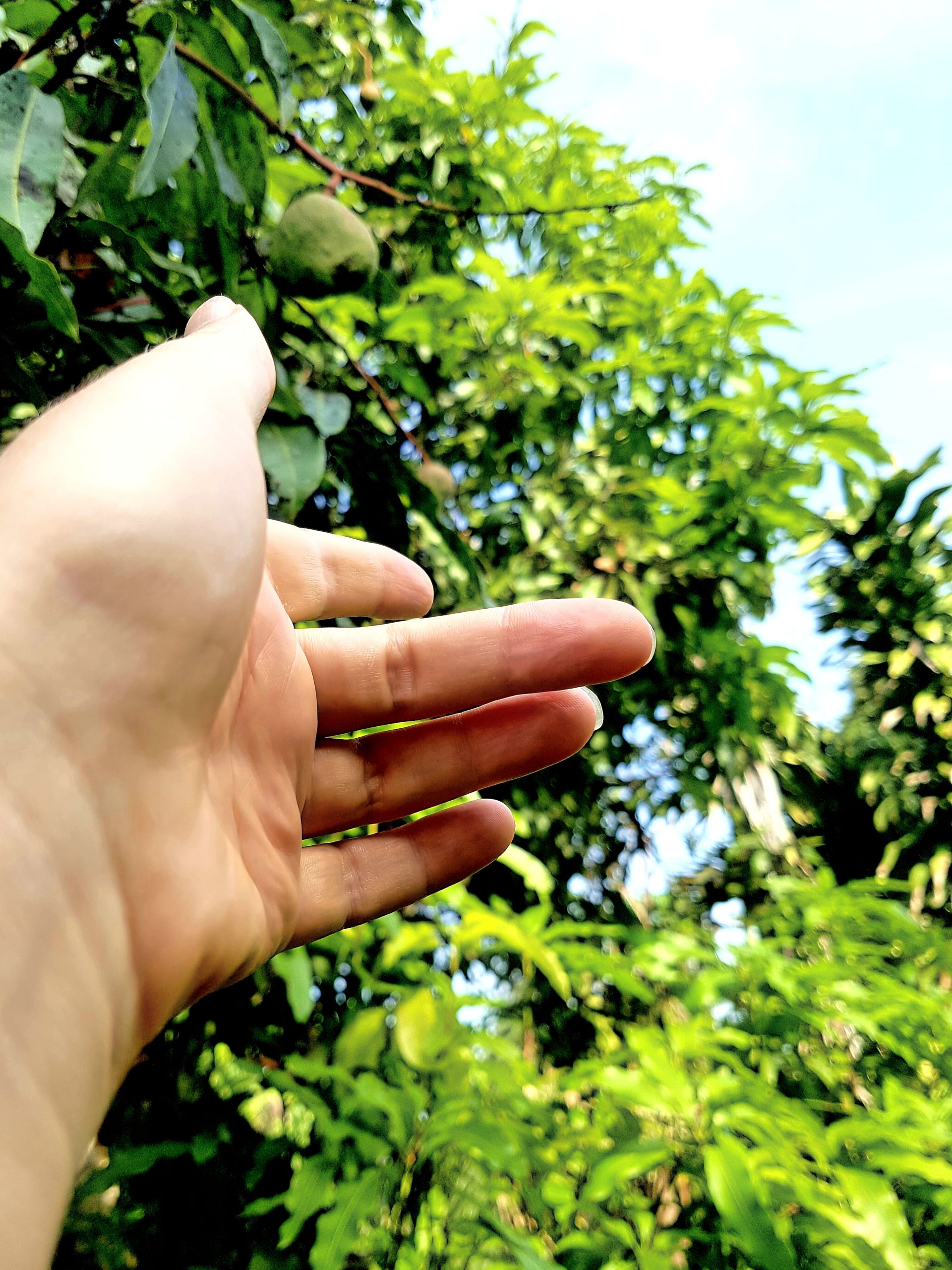
God is continuing to tend the seed Harpreet and the Spirit planted that day. Jamaica, rich in life, is good soil for this growth. Ever green, lush and fruitful, the land and the creation contained within is teaching me so much about time. A city girl, I’m learning as seeds planted pop through soil, branches sprout, leaves form and buds appear, flowers unfold, attract bees, birds and butterflies, and so comes the tiniest first sign of fruit: I am learning good things take time. Because as the fruits grow, change colour, weigh down branches, draw closer to arm’s reach (often with a lot of jumping in my case to the delight and laughter on my onlooking neighbours), patience and/or angst grows too.
In addition to creation’s lessons in time, the beautiful people I am meeting here in Jamaica seem to understand a sense of time in a way that I don’t fully yet. You’ve probably heard a joke about “island time” or references to “Caribbean time”. Not always but frequently, these comments insinuate not just a different perspective of time but almost a lack of respect for (people’s) time… What I’m learning being here is that the truth seems to be the exact opposite. There are good grounds for a debate that time is truly respected here.
My life in Canada tended to always be so fast-paced. Life in North America is known to be this way: fast food from a drive-thru and insta-pot cooking of ready-to-cook/eat grocery store produce, online purchases with just a click of a button (no time spent going to the store yourself), tap debt and credit cards to buy microwaves and instant coffee, digital cameras and fast speed internet, sound-bytes and 10 second commercials, washing machines for our laundry so we can get on with other tasks and drive-through car washes: there are an abundance of options to “save time”. Multitasking is valued as an essential skill, not just a popularized means of time-saving. I all too often practiced listening to music or a friend on the phone, while doing a load of laundry (in the machine of course), writing a mental grocery list between chopping vegetables to prepare dinner, leaving no dish unwashed in the sink, and all while planning/ hoping/ praying about how I’d get to the girls at Pringle Home again one day. Working hours were busy but non-work hours were jam packed too, and so were the thoughts and worries, hopes and prayers in my mind. It’s no wonder I often felt so anxious, and had to lean into Philippians 4:6-7 time and time again.
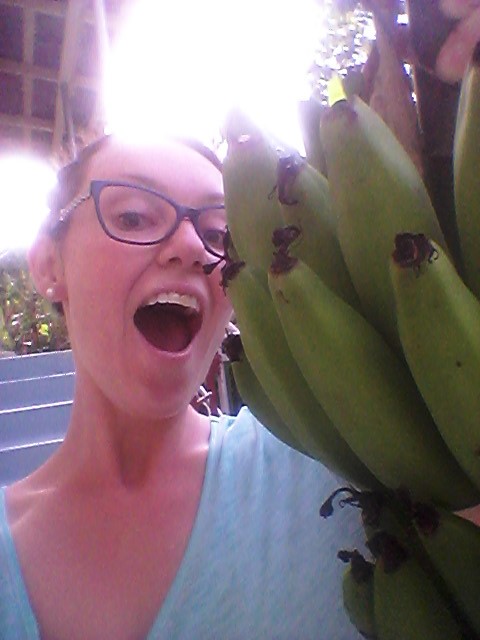
Living in a middle-income developing country, increasingly Jamaicans either already have or are in the process of getting all of the same luxuries of convenience to “save time” as North Americans, and this is especially true in city-centres. Still, there is merit to statements that allude to time being somehow different here. It’s in the experience of having a relationship with the land but also in other aspects of day-to-day life in the culture. For example, where I am in Jamaican now (a more rural part of Jamaica), I hand-wash my cloths, linens and towel. Like the majority of other people in my community, I hang my washing out in the sun to dry. At some point in the day, I am called out to accompany neighbours for face-to-face conversations and this undistracted time is shared, unrushed, for however long it takes to catch up. If the conversation last into meal-time, I am invited in for a seat at the table after spending the afternoon hours learning how to cook traditional Jamaican dishes, which take plenty of time and thyme: stew peas, rice and peas and authentic jerk (a style of cooking popular in Jamaica), hearty and slowly simmered Saturday soups. First, we dig up the coco from the yard, and pick and shell the gungo peas ourselves. After dinner, neighbours take turns debating theology, and this lively discussion could last as long as the common 3-4 hour worship services on Sundays. We end the night with cooled pudding which had been baking all day on a coal fire in the backyard – a tradition from generations past that all agree tastes better than oven-baked and as such withstands the test of time.
COVID-19 has hampered these interactions – time spent physically and socially together – but my lessons in time haven’t stopped. As I walk solo through my community, I can’t help but notice that a different sense of time is built right into the infrastructure of where we live. It is built in the houses themselves. Every dwelling is unique; none look the same. Some are wide one-storeys and others are multi-storey mansions of sorts. Most, though, are incomplete: works-in-progress, a home in the making, dreams unfolding slowly but surely; from plots of overgrown land, to dwellings with iron casting still poking out telling the onlooker “You just wait, I’m not finished yet, there’s a vision here, wait and see what I’m going to be”. Many of the homes are not yet fully flashed or casted, are unpainted, and gravel, stones and sand in the driveway tell that more is yet to come. Homes here can take years, even decades to complete, step-by-step as money to buy materials is worked for and accumulated (starkly different from housing in North America which is purchased with credit, move-in ready, not planned and built phase by phase over the years). But families live in these homes in the meantime. The laughter and sounds of conversations from within bring my heart so much joy as I walk by. In the same way that different crops take time to come in and harvest, so the houses, the families within and this community are equally all in a state of becoming. So am I.
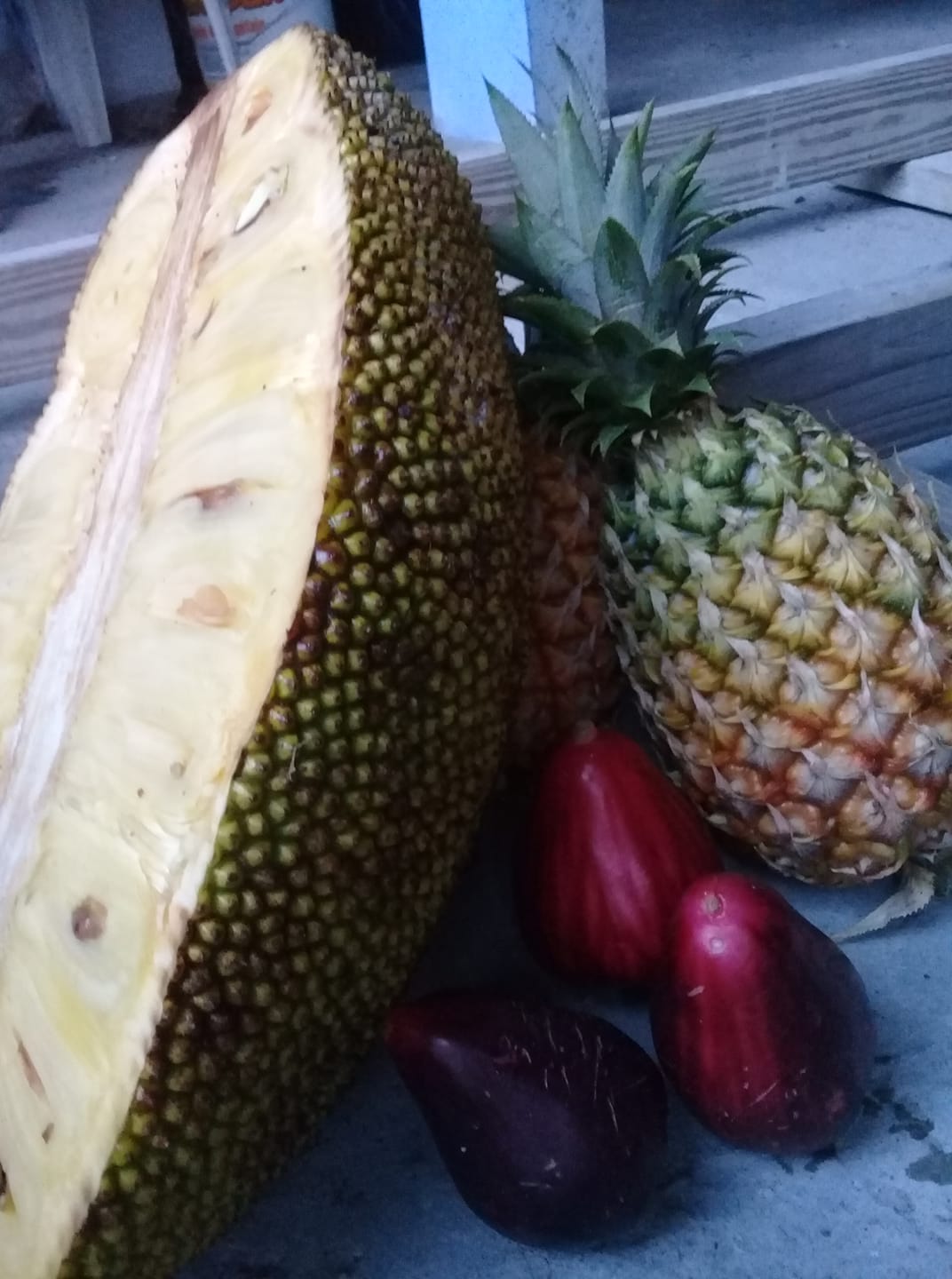
In Jamaica, I am learning what the people here know and offer readily as wisdom: good things take time. My relationships with the girls and the staff at Pringle Home for Children will take time. Trust takes time. Hope and pray as I might, I cannot rush them. Good fruit (mangos and papaya as much as love, joy, peace, patience, kindness, goodness, faithfulness, gentleness, and self-control) take time to grow. There’s no quick fix for these. Learning and the unfolding of miracles both take time. The journey towards the dreams we hold is built one step at a time. Recovery and healing both require time. Reflection is nourished with time. Time, which I strove to save, is offered here as a gift, often! I’m learning it is a magnificently powerful love language. I am challenged to slow down, take time, share time, give my time and spend my time differently. I’m starting to appreciate time in the seemingly ever-youthful look on all my neighbour’s faces, pepped in their friendliness, calm and ease, their gifted sense of presence in all conversations, their joy, peace and patience, all of which are fruit of respecting time deeply: understanding that things take time, so don’t rush. And as I learn and practice this new sense of time alongside my sisters here in Jamaica, my fragmented attention focuses, anxiety decreases and the internal chaos from feeling like I’m unproductive if not multitasking quiets. I’m able to hear and see God in this state much more clearly, and what is more precious a gift than this? I’m able be blessed and in turn a blessing better this way.
My suspicion is that I’m preaching to the choir for many of you reading, but I’m also aware that the pandemic which has thwarted our plans, time-tables, commitments and routines has all of us thinking about time, and our relationships to patience and angst, in a different light now. Coming out of this pandemic, out of our homes from isolation, the emotional not to mention economic repercussions, will take time. Healing from this experience, the grief that’s come with it in so many forms and for so many reasons, will require time. May we find comfort in knowing that God is with us in it all, in each of the 24 hours God so lovingly, justly and generously gives us. May we (as congregations as much as individuals) be empowered to step fully into the invitation to rethink and recalibrate on many important things, our relationship with busyness and rest being one. I pray the Creator God who is simply is, Word and Spirit who was long before creation’s formations, the I Am who holds time in loving hands, our Lord of peace and rest, will help you and I sense the ways God is already with us, even as Life, Love and Light always has and always will be. Abiding with you, may God slow down racing thoughts, and as deeply as you breathe, may you fully know how deeply cared for you are, in simply being dearly beloved… but if you like I need it, take all the time necessary to get this truth! Amen.
Rachel Pellett serves with the United Church in Jamaica and Cayman Islands. Her appointment is made possible by your gifts to Disciples Mission Fund, Our Church’s Wider Mission, and your special gifts.

